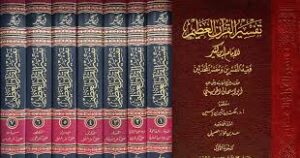
Why Not to Worry About Numbers & Beneficial Points From Tafsīr Ibn Kathīr – Ramadan 1446 AH
Alḥamdulillah, this month in Ramaḍān, for the middle 8
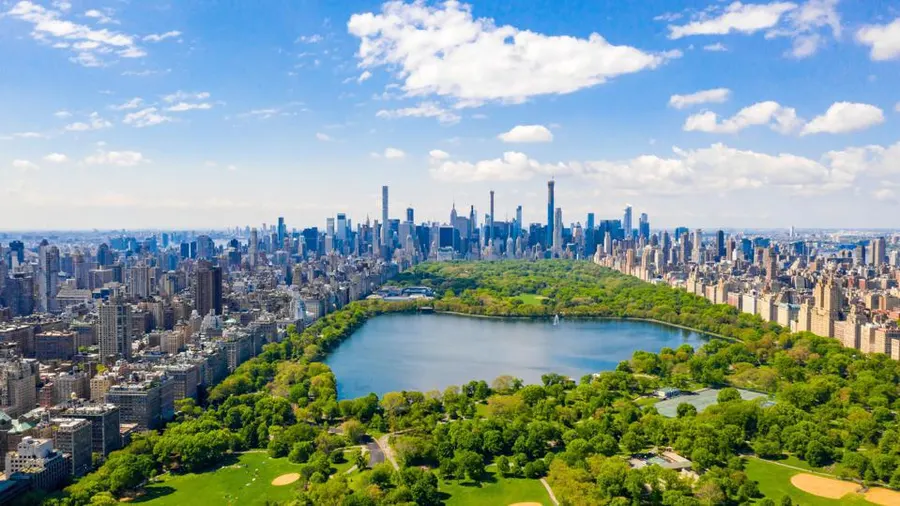
Alḥamdulillah, on Sunday 21st July 2024, I visited the USA for a series of lectures. Alḥamdulillah, my book ‘An Introduction to the Science of the Noble Ḥadīth Volume 1’ was also available for purchase at all the events and all of the 117 copies were sold out during the week. Further copies have been ordered for the students and scholars in USA. The following paragraphs outline my journey as well as the institutes that I visited. I have attempted to highlight a unique feature that I recognised in each institute. Accompanying me in this journey were my brother, Maulana Zubeir, and my dear friend, Mufti Dr. Asmar Akram. A gentle note that should be kept in mind is that each institute we visited will have many more unique features than the ones outlined below. Hence, the unique features are only the ones that I noticed in my short visit.
Journey Begins on Sunday 21st July
We landed at JFK airport, New York, in the late afternoon of Sunday 21st July. We spent the evening with two dear friends who took us for dinner around Times Square. We later returned at night to our residence for some much-needed rest. This was going to be an intense week.
Monday 22nd July – NEW YORK – Visit to Darul Uloom New York (DUNY) & Darul Uloom New Jersey (DUNJ)
After having arrived on Sunday late afternoon, and having rested for the night, we were looking forward to our visit to Darul Uloom New York (DUNY) in the morning. A lovely madrasah wherein we were welcomed by Maulana Suhel Teli and given a tour of the madrasah. The madrasah has both an Alimiyyah programme as well as ḥifẓ class students. I spoke to the Alimiyyah students for approximately 1 hour about the etiquettes of a student of sacred knowledge. The talk may be accessed here:
The unique feature of Darul Uloom New York is the fact that many of the classes had a library within each class itself. This is something that I am passionate about and consider it important for every madrasah to have; a small library for each class. With a library within the class, teaching becomes easier as the teacher can point to relevant books and students also become curious and inspired as they peruse through some new books themselves. Another unique feature and an aspect to be applauded was seeing many students write down notes as the talk was going on. This demonstrates a zeal and engagement with their learning. The talk ended around 11:30 am.
We then travelled to Darul Uloom New Jersey (DUNJ), another elegant Madrasah with a slightly younger group of students. We reached there just prior to ẓuhr ṣalāh. While Darul Uloom New Jersey also had a library in each class, the unique feature in this madrasah seemed to be the discipline within the students. When we arrived just prior to ẓuhr ṣalāh, we were informed that the students have exams after the talk. It was amazing to see students spending the little time between the sunan of ẓuhr and the farḍ of ẓuhr in revising for their exams. Every second before the iqāmah was spent studying notes, showing the deep engagement they had with their studies. After ẓuhr ṣalāh, I delivered a short talk on the etiquettes of a student of knowledge, though the talk was quite short as the students had to prepare for their examinations. After the talk, the students lined up and greeted us all, another testimony to the discipline instilled within them by their principal Mufti Shabbīr, whose father had first started this madrasah.
We then had an amazing lunch with the principal, Mufti Shabbīr, a student of Muftī Muḥammad ʿAbd al-Mālik, in the teacher’s office. One of the teachers drew my attention to Mufti Muḥammad ʿAbd al-Mālik’s biography that has recently been printed. Due to these books generally not being accessible outside of Bangladesh, I scanned this short book and present it here in a downloadable manner:
In the evening, at around 10 pm, I had the good pleasure of meeting Maulānā Sadeek Ur Rahman and other scholars who had studied takhaṣṣuṣ fi’l-ḥadīth with Muftī Muḥammad ʿAbd al-Mālik. They kindly gifted me a few books.
Tuesday – ATLANTA – Visit to Georgia Islamic Institute (GII) and Masjid Omar bin Abdul Aziz
We arrived in Atlanta around mid-day on Tuesday 23rd of July. We visited Georgia Islamic Institute (GII) and were warmly welcomed by Maulana Asadullah Khan, whose father Maulana Abdul Ghaffar is the founder of the institute. The institute is huge and usually hosts many of the tablīghī ijtemās that have occurred in the US in the past. Immediately upon arrival, I delivered a short talk to the students on the etiquettes of knowledge. We then rested in the guest house at the institute.
After ẓuhr ṣalāh, we were blessed to spend approximately an hour with Maulana Abdul Ghaffar Sb, a senior scholar who had arrived in the US in the 80s and did his PhD on Shāh Waliullah. He is a senior scholar and has spent considerable amount of time in the company of Maulana Abdullah Darkhwāstī raḥimahullah (d.1415 AH/1994 CE), famously known as a ḥāfiẓ of ḥadīth. Maulana Abdul Ghaffar told us many stories regarding his teachers and informed us that he gets emotional when discussing Maulana Abdullah Darkhwāstī. When asked how he had been able to acquire so much land to be used for a madrasah, he replied:
اوپر کا معاملہ سیدھا کرلو اور نیچے کا معاملہ خود بخود حل ہوجائے گا
Sort out your affairs with The One above and the matters below will resolve themselves.
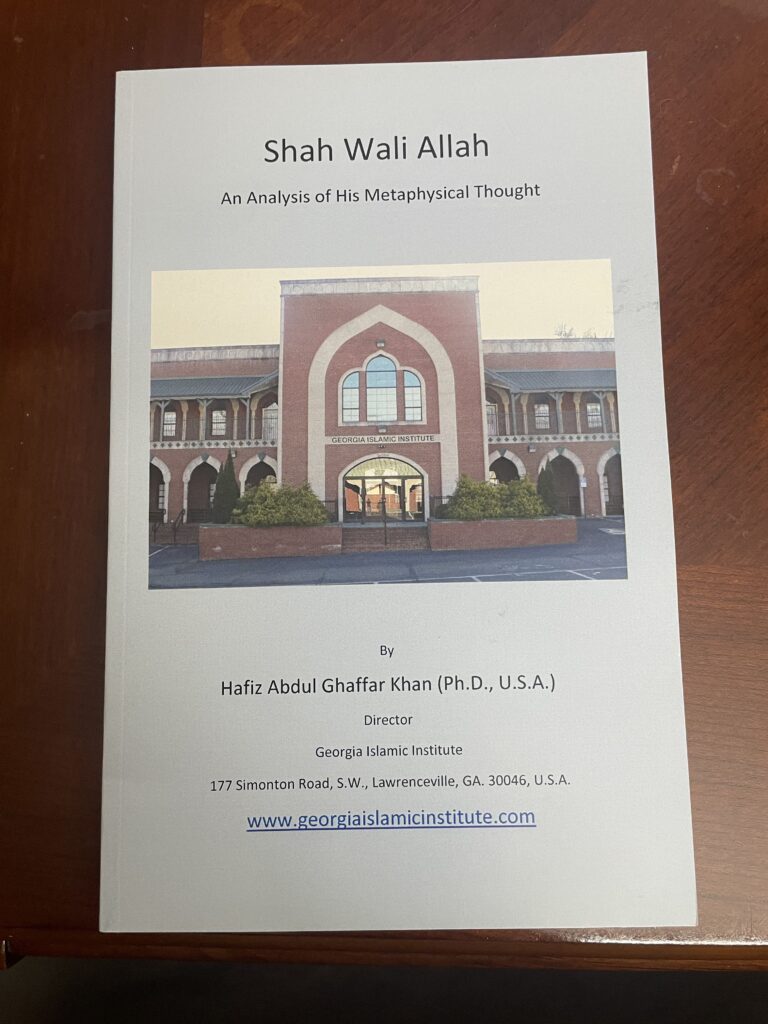
Later during the day, Maulana Asadullah showed us the various lands owned by the institute and allowed us to eat a delicious fig from a fig tree growing on the lands.
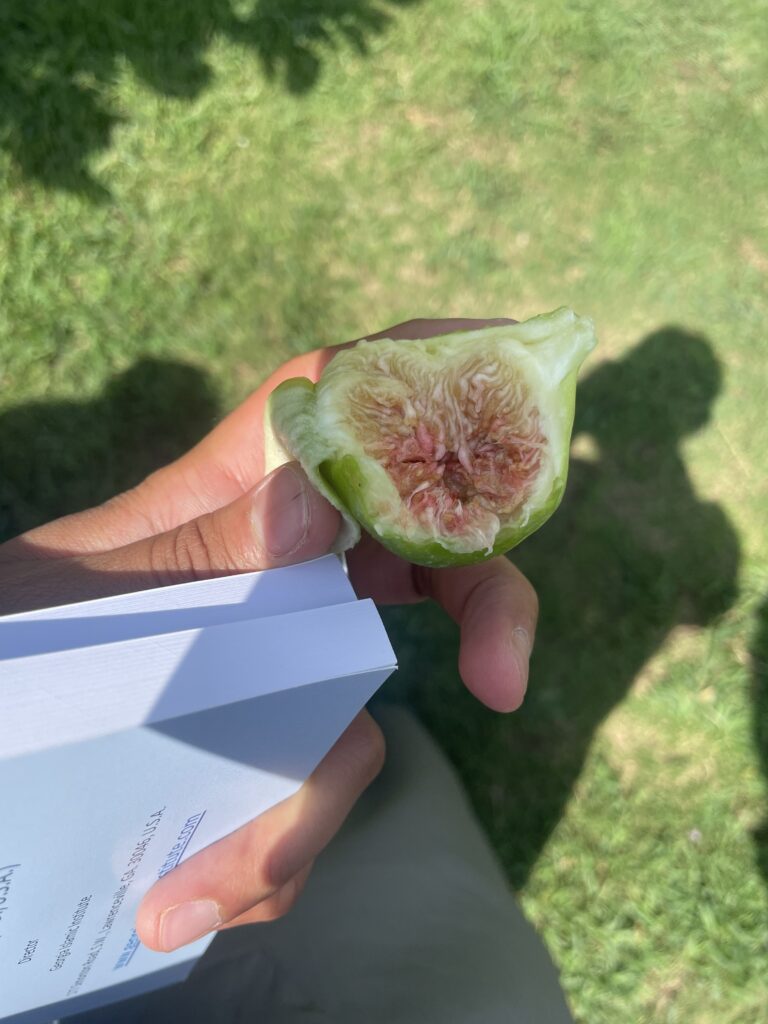
In the evening, I had a talk at Masjid Omar bin Abdul Aziz on “The Authority and Preservation of the Sunnah”. The talk may be accessed here:
In the morning of Wednesday, I led fajr ṣalāh and delivered a short talk thereafter on the importance of staying attached to the masjid. Thereafter, Maulana Asadullah brought breakfast for us, and we headed to the airport.
Wednesday – TAMPA – Visit to TMC Masjid, ISTABA and the Makkiyah Intensive at ISONET
We arrived in Tampa around mid-day. The weather in Florida was a lot hotter than many of the other areas in USA. After having lunch, we headed to the TMC Masjid. After ẓuhr ṣalāh, I gave a short talk on the definition of fiqh, and we then headed to the Islamic Society of Tampa Bay Area (ISTABA). We found a small library there from which I purchased Fiqh al-Sīrah of Shaykh Ramaḍān al-Bouṭī. In the afternoon, we visited the Islamic Society of New Tampa (ISONET), and I delivered a short lecture on “The Importance of Kūfah” at the Makkiyyah Intensive. The talk may be accessed here:
The slides used for the lecture may be accessed here:
Thursday – CHICAGO – Visit to Darus Salam, Darul Qasim, Institute of Islamic Education (IIE) and Masjid Uthman
We arrived in Chicago on Thursday. Throughout our travels, we had continuously heard of Chicago ‘Shareef’ as the place to go in order to see a blossoming Muslim community filled with talented scholars. The claims seemed to be accurate as we saw the tremendous engagement with Islamic knowledge in Chicago.
We were picked up from the airport by someone whose company I shall never forget, Riaz bhai. Riaz bhai had known Mufti Ebrahim Desai raḥimahullah (d.1452 AH/2021 CE) for over 20 years before Mufti Sahib’s sudden demise in 2021. He shared with me some fond memories of Mufti Ebrahim and emotionally said – to the effect, “It’s almost every day that I in some way or another remember Mufti Ebrahim.” Riaz bhai’s kindness and generosity will not be forgotten, he graciously opened his home out for us, purchased American candy for us (yes, ‘Turtles’ and ‘Jolly Ranchers’ included) and even gave us one of his suitcases to use and take to the airport.
From the airport, when we arrived at Darus Salam, we placed our bags there and set off with Maulānā Haroon to visit Darul Qāsim, which is approximately a half an hour drive away from Darus Salam. While I only had the chance to meet a few students due to them being on holiday, the structure of the institute and organisation within the institute was impressive. The founder of the institute is Shaykh Amin Kholwadia who was away on a trip to Turkey. Something that stood out for me is that the rooms and classes were named after important scholars of Islam. An even more subtle aspect was that Shaykh Amin’s office is named after his teacher Qārī Muḥammad Ṭayyab and this office lies within a larger complex named after Shah Waliullah. The subliminal messaging here is unique as Shaykh Amin represents the teachings of his teacher Qārī Muḥammad Ṭayyab who in turn represents a particular strand of Shah Waliullah’s thought. We then had lunch and then visited Darul Qasim’s new magnificent campus. The campus also has a beautiful outdoor area with natural scenery.
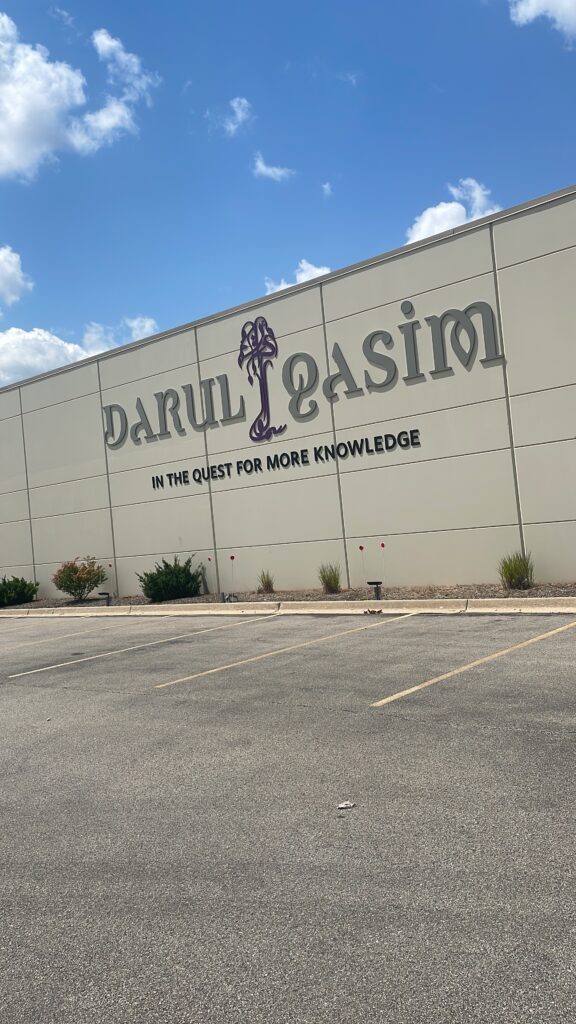
We then went to visit Institute of Islamic Education (IIE), considered one of the oldest – if not the oldest – institute in the US. In the later 1980s, a khatme-nubuwwah conference took place in the US attended by scholars such as Maulana Abu’l Ḥasan ʿAlī al-Nadwī raḥimahullah (), Muftī Taqi Usmani and others. The conference led the scholars to the resolution that a madrasah should be established in the US and so this institute was established.
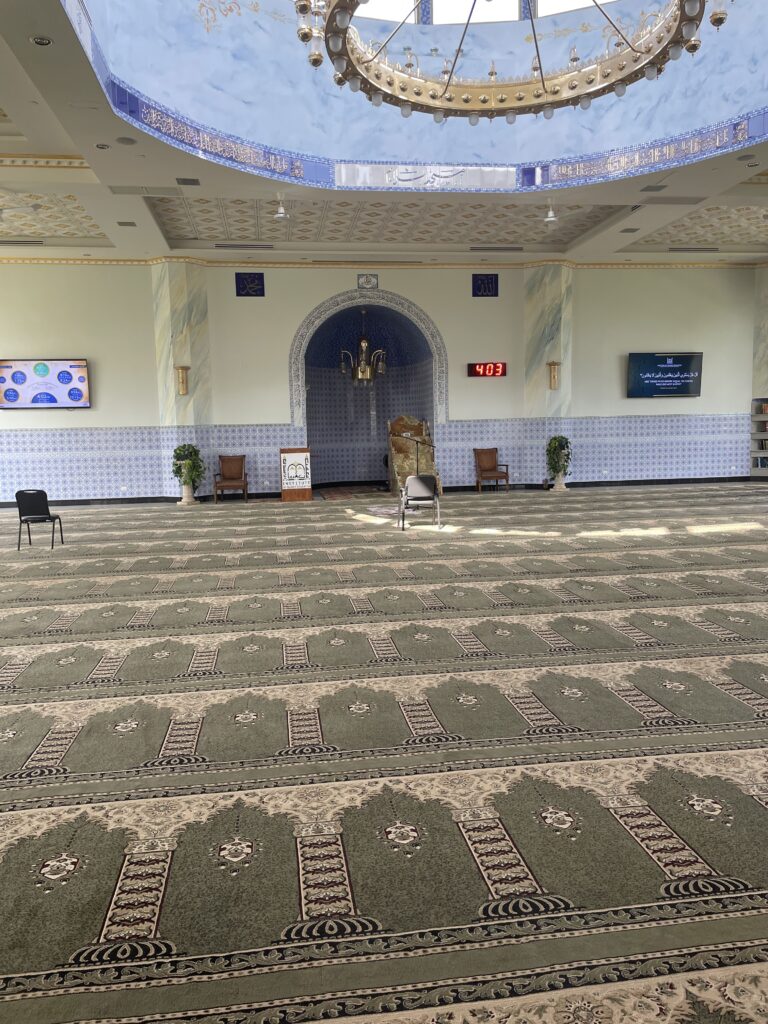
At the institute, we had an incredible 1.5-hour discussion with Maulana Abdullah Saleem, a student of Shaykh al-Islam Maulānā Husayn Aḥmad Madanī raḥimahullah (d.1377 AH/1957 CE), Maulānā Fakhr al-Dīn Murādābādī raḥimahullah (d.1392 AH/1972 CE) and Qārī Ṭayyab raḥimahullah (d.1403 AH/1983 CE). He is the son of Maulānā Muhammad Naeem, a student of Maulānā Ḥusayn Aḥmad Madanī raḥimahullah (d.1377 AH/1957 CE) and author of Kamālayn Sharḥ Jalālayn and the exegesis Anwār al-Qur’ān. Alḥamdulillah, we read to him the first ḥadīth in Ṣaḥīḥ al-Bukhārī and he gave us ijāzah in ḥadīth. Maulana Abdullah Saleem told us a fascinating story about the demise of Qārī Muḥammad Ṭayyab Sb raḥimahullah (d.1403 AH/1983 CE). During his final moments, he wished to research his book Maqāmāt Muqaddasah a little further. As he asked for a book to be brought to him from the library, his soul left this temporary abode.
It is within the IIE compound that Muftī Abrar Mirza’s Darul Iftaa and Mufti Yasir Nadeem’s takhassus fi’l-ʿaqeedah classes also take place. Mufti Yasir Nadeem is also related to Maulana Abdullah Saleem.
In the evening, I had the good fortune of reuniting with my beloved teacher Mufti Husain Kadodia – who had just arrived to Chicago – and sat with him for a short while before I had to leave for a programme. I also met for the first time Mufti Abrar Mirza, the head of Darul Iftaa Chicago and a very close student of Mufti Ebrahim Desai raḥimahullah (d.1442 AH/2021 CE). In the programme that evening at Masjid Uthman, I spoke about the manner in which the Prophet ṣallallahu ʿalayhi wasallam preserved his own aḥādīth. The talk may be heard here:
Following the lecture, I met Maulana Bilal Ali Ansari, we spoke about various aspects of ḥadīth, and I gave him my book ‘An Introduction to the Science of the Noble Ḥadīth Volume 1’ as a gift. We also spoke about Shaykh Umar Farooq Abdullah, who also resides in Chicago. After speaking with Maulana Bilal, I returned to spend some more time in the late evening with Mufti Husain Kadodia before retiring to our residence for some much-needed sleep.
Friday – CHICAGO – Events at Darus Salam
Continuing on from the night earlier, I managed to spend an ample amount of time with Mufti Husain Kadodia on Friday. First, at breakfast, then in his lesson with the students of the final year at Darus Salam and then later in the teacher’s office at Darus Salam. Darus Salam has an impressive building with a Turkish architectural style which you can see here:
Mufti Husain left for the airport later that day at approximately 4 pm. Earlier in the day at around 12:00 pm, I gave a short talk to the ḥifẓ students at Darus Salam. There are many students becoming ḥuffāẓ at Darus Salam and the basement seemed almost full. The students seemed to be ranging from a very young age until approximately 17 years of age, if not higher. I was impressed with how engaged the students were with the talk considering their young age. Although I made the talk engaging and fun, I was surprised by just how much the students seemed to enjoy the talk.
Alḥamdulillah, at 1:00 pm, I led the talk before the Jumuʿah ṣalāh at Darus Salam. I spoke about the unique abilities of the Prophet ṣallallahu ʿalayhi wasallam in winning the hearts of the people around him. I then led the khuṭbah and ṣalāh. The talk, khuṭbah and ṣalāh may be heard here:
At approximately 5:30 pm, I sat with the general students of the Alimiyyah programme. I spoke with them about the manner in which one should take notes when reading a book and how one should continuously remain engaged in reading books. The students were continuously taking notes throughout the talk and even had a number of follow-up questions after the programme.
Then, after Maghrib ṣalāh at Darus Salam at 8:15 pm, I gave a 1-hour lecture on Imām Abū Ḥanīfah and his methodology. The recording of the lecture may be accessed here:
The PowerPoints used during the lecture may be access here:
After Ishā ṣalāh at 10:00 pm, I had the good opportunity of having a tour of Darus Salam with Mufti Azeem Uddin, the son of the founder of the institute, Dr Misbah Uddin. Dr. Misbah Uddin had built Darus Salam by first purchasing a small property in 2008 and then built an incredible complex using his own money by investing his savings and 401K into building this seminary. The seminary now serves as his legacy. Mufti Azeem Uddin showed us the incredible work that Darus Salam do and how he himself travels around the US essentially enlisting students to join the seminary and engage themselves in some form of Islamic education. He was particularly passionate about the one-year intensive that Darus Salam offer wherein a student is equipped with all the tools to take on the practical and theological challenges faced by Muslims in our modern times.
An intense and energetic personality, Mufti Azeem Uddin knows how to utilise the guests that visit this institute. I hope he does not mind this when he reads this, but just as ḥāfiẓ Ibn Dīzīl raḥimahullah (d.281 AH) was given the title ‘Sīfannah’ after a bird that would eat all the leaves of the tree that it would sit upon – referring to the fact that Ibn Dīzīl would acquire every ḥadīth from any scholar that he would visit, I would give Mufti Azeem Uddin the title ‘the Syringe’ as he extracts every benefit he can get out of the scholars that visit Darus Salam, for the benefit of the students. May Allah the Almighty bless him and reward him. Later in the evening, we met Shaykh Hamzah Wald Maqbul and spent approximately 1-2 hours with him discussing various aspects of life and religion.
There are many unique aspects of Darus Salam. From amongst them is the fact that despite the beautiful structure of the institute and the professional setting, it is in every aspect a traditional institute. The women’s section is completely separate from the men’s section and the institute generally avoids photography. While the latter is a matter of dispute within the scholarly tradition, the position generally adopted by the institute is commendable and respected. It should also be noted that the writer of this travelogue also respects the position of those who hold another position on this issue.
Saturday – MICHIGAN – Tawheed Centre
In the morning of Saturday, at around 10:30 am, I had a small talk with the final year students at Darus Salam. I was happy to know that they were aware of books such as ‘Tuḥfah al-Ashrāf’ and ‘Itḥāf al-Maharah’. These are books that are often neglected in the final years of our syllabus and students, at times, graduate without being fully aware of books of this nature. Alḥamdulillah, I spoke to the students about my ḥadīth book, ‘An Introduction to the Science of the Noble Ḥadīth Volume 1’. Almost immediately after the talk, we began our 5-hour road trip to Michigan with Mufti Azeem Uddin.
At around 7:00 pm, we reached Michigan and were warmly welcomed by Mufti Wahaaj with a lovely meal. After that I delivered a lecture on ‘The Genius Intellectual Abilities of the Prophet Ṣallallahu ʿAlayhi Wasallam’ at Tawheed Centre. This was a warm and welcoming masjid that had a very homely feeling to it. A unique feature at this masjid was something I noticed after the Maghrib ṣalāh. After the Maghrib ṣalāh ended, medals and trophies were given out to students who had won the ‘adhān competition’ that the masjid had held. I saw children around the age of 5 and 6 coming forward to collect their awards for excelling in the adhān competition. A unique idea and initiative of connecting the youngsters to the masjid. Perhaps an enjoyable part of the lecture was during the Q&A when Mufti Wahaaj asked that a common question he receives is how Abū Hurayrah raḍiyallahu ʿanhu has narrated so many aḥādīth, in response, it felt very satisfying to ask for a copy of my ḥadīth book and read the answer directly from my ḥadīth book, pages 148 to 154.
We later spent the night at Mufti Abdullah al-Mahmudi’s place, a class-mate and student of Mufti Ebrahim Desai. We discussed some stories of Mufti Sahib.
Sunday – NEW YORK – Baitul Hamd Institute
We arrived back in New York at approximately mid-day and visited Baitul Hamd institute. Mufti Tofael was conducting a class with a group of students ranging from a variety of backgrounds. This was real grassroots work wherein Mufti Tofael informed me that some of the students are proper Islamic knowledge students, others are relatively new to Islam and others are not yet even a Muslim. I gave a short talk on the value of Islamic knowledge to the students and then answered some questions asked by the students. We then went to eat and the students proved their credentials as students of Islamic knowledge by turning up at the restaurant even before we had arrived! Masha’Allah, I kid of course. I had some beneficial discussions with the students and then headed to JFK airport. Alḥamdulillah, we landed in Manchester on Monday morning 29th July 2024.
Gratitude
I will have fond memories of the hospitality and kindness shown to us by the many respected scholars and Muslim brothers in the US. May Allah the Almighty bless them and reward them immensely. Ameen.

Alḥamdulillah, this month in Ramaḍān, for the middle 8
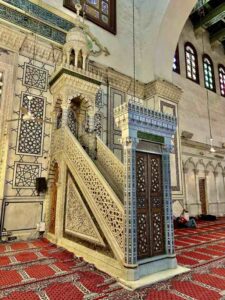
Question: Is it permissible for the Khutbah to take

Question: Assalamu Alikum warahmuttali wabarakatu 1. My Aunt passed away 2

Question Can we use ointment which contains lanolin (wool

Question: A 55-year-old male, currently in the state of

Question: A person is having trouble whilst washing their